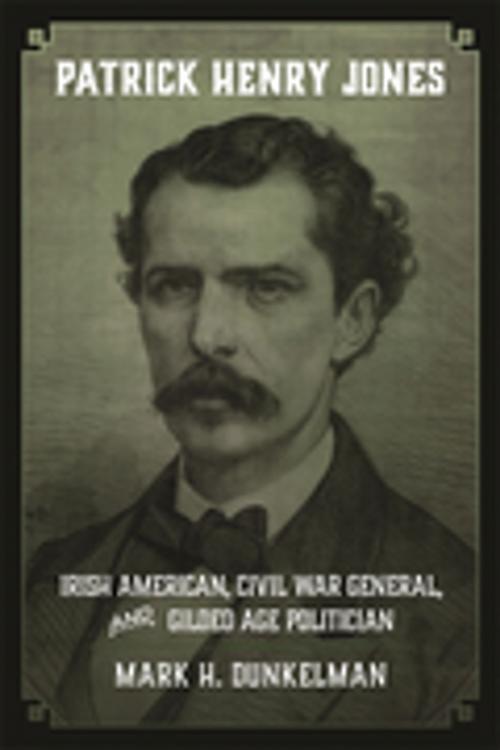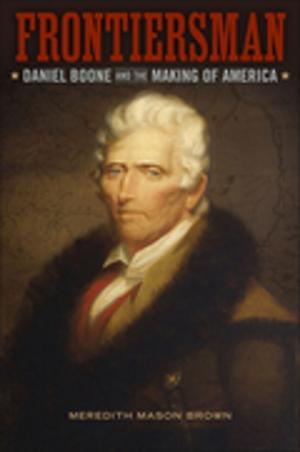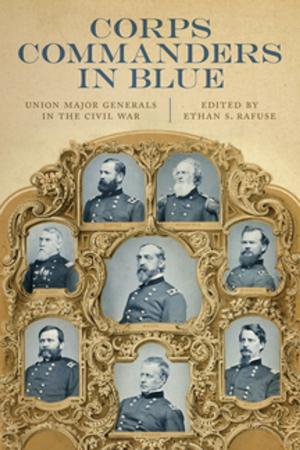Patrick Henry Jones
Irish American, Civil War General, and Gilded Age Politician
Nonfiction, History, Americas, United States, Civil War Period (1850-1877)| Author: | Mark H. Dunkelman | ISBN: | 9780807159682 |
| Publisher: | LSU Press | Publication: | May 18, 2015 |
| Imprint: | LSU Press | Language: | English |
| Author: | Mark H. Dunkelman |
| ISBN: | 9780807159682 |
| Publisher: | LSU Press |
| Publication: | May 18, 2015 |
| Imprint: | LSU Press |
| Language: | English |
Patrick Henry Jones's obituary vowed that "his memory shall not fade among men." Yet in little more than a century, history has largely forgotten Jones's considerable accomplishments in the Civil War and the Gilded Age that followed. In this masterful biography, Mark H. Dunkelman resurrects Jones's story and restores him to his rightful standing as an exceptional military officer and influential politician of nineteenth-century America.
Patrick Henry Jones (1830-1900), a poor Irish immigrant, began his career in journalism before gaining admittance to the New York bar. When the Civil War erupted in 1861, Jones volunteered for service in the Union Army. He rose steadily through the ranks of the 37th New York, became general of the 154th New York, and eventually attained the rank of brigadier general. Jones was one of only twelve native Irishmen ever to attain that rank in the federal forces.
When the war ended, Jones's reputation as a military hero gave him an entry into politics under the mentorship of editor Horace Greeley and politician Reuben E. Fenton. He served in both elective and appointed offices in the state of New York, navigating the corruptions, scandals, and political upheavals of the Golden Age. Ultimately, his entanglement with one of the most sensational crimes of his era-a high-profile grave-robbing from the cemetery of St. Mark's Church-tainted his name and ruined his once-respectable career.
In the first full-length biographical account of this important figure, Patrick Henry Jones tells the quintessentially American story of an immigrant who overcame both his humble origins and the rampant xenophobia of mid-nineteenth-century America to achieve a level of prominence equaled by few of his peers.
Patrick Henry Jones's obituary vowed that "his memory shall not fade among men." Yet in little more than a century, history has largely forgotten Jones's considerable accomplishments in the Civil War and the Gilded Age that followed. In this masterful biography, Mark H. Dunkelman resurrects Jones's story and restores him to his rightful standing as an exceptional military officer and influential politician of nineteenth-century America.
Patrick Henry Jones (1830-1900), a poor Irish immigrant, began his career in journalism before gaining admittance to the New York bar. When the Civil War erupted in 1861, Jones volunteered for service in the Union Army. He rose steadily through the ranks of the 37th New York, became general of the 154th New York, and eventually attained the rank of brigadier general. Jones was one of only twelve native Irishmen ever to attain that rank in the federal forces.
When the war ended, Jones's reputation as a military hero gave him an entry into politics under the mentorship of editor Horace Greeley and politician Reuben E. Fenton. He served in both elective and appointed offices in the state of New York, navigating the corruptions, scandals, and political upheavals of the Golden Age. Ultimately, his entanglement with one of the most sensational crimes of his era-a high-profile grave-robbing from the cemetery of St. Mark's Church-tainted his name and ruined his once-respectable career.
In the first full-length biographical account of this important figure, Patrick Henry Jones tells the quintessentially American story of an immigrant who overcame both his humble origins and the rampant xenophobia of mid-nineteenth-century America to achieve a level of prominence equaled by few of his peers.















